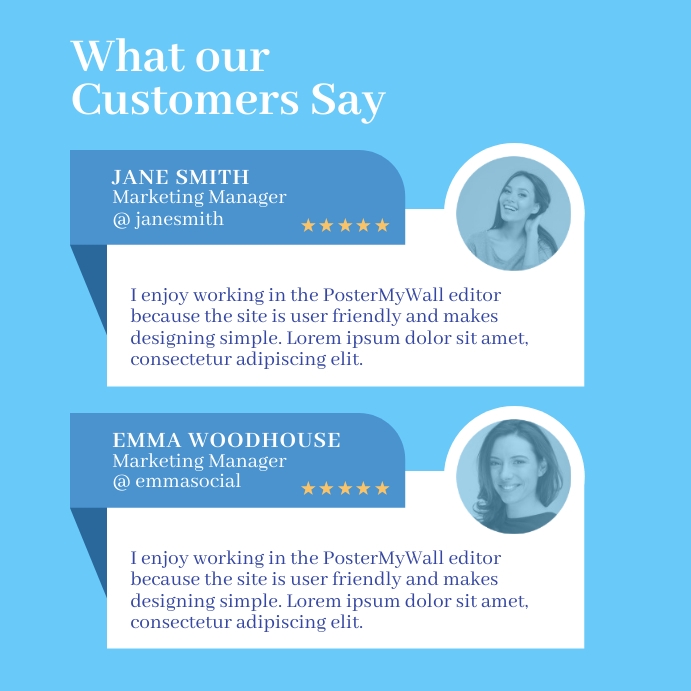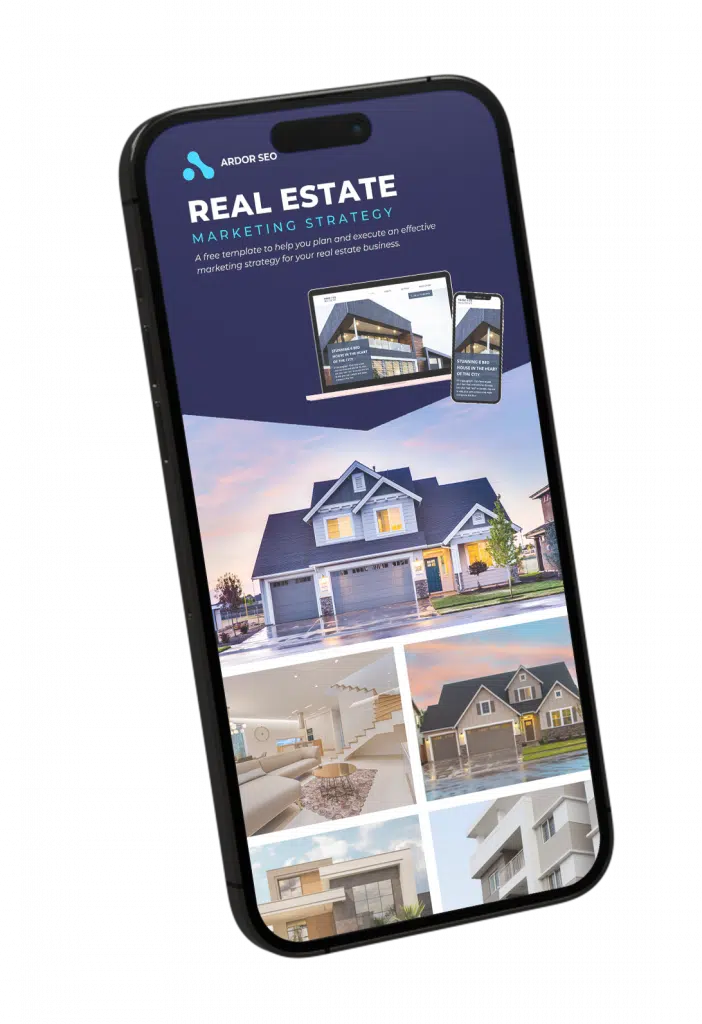
The real estate industry is competitive, and with the advent of digital marketing, it's no longer enough to rely on traditional marketing methods alone.
Real estate inbound marketing has emerged as a powerful approach for attracting potential buyers and sellers by providing valuable content that answers their questions and satisfies their needs.
By leveraging the right inbound marketing strategies, real estate agents can build trust, establish authority, and, ultimately, drive more business success.
Whether it's creating engaging blog posts, developing social media campaigns, or implementing email marketing, agents can utilize inbound marketing for real estate in various ways.
This article explores the top inbound marketing strategies for real estate agents and provides practical tips on executing them effectively. Let's dive in!
5 Effective Tips for Real Estate Inbound Marketing
Inbound marketing has many customer relationships and financial benefits when done right. Since it's an ongoing multichannel strategy, you need to stay updated to enjoy the best possible returns.
Inbound marketing strategies differ from one real estate agent to another. However, each process covers a few basic rules.
If you're looking to grow your firm through inbound marketing, consider following these tips:
1. Define Your Buyer Persona
To create an effective marketing strategy, you need to create a buyer persona to know your potential customer's needs and how best to meet them.
A buyer persona represents a group of persons sharing common traits. Although it's a fictional character, it helps you understand your prospects better.
Start by interviewing your past clients to discover common traits. Then, tailor your content according to their needs through your findings.
2. Create Relevant Content and Distribute it Across Various Platforms
Most people are naturally drawn to things that inform and entertain them. Likewise, internet users prefer websites with unique, informative, and relevant content.
Hence, you need to create content that interests prospects and attracts leads, such as how to apply for a mortgage or news on interest rates. Also, use various shareable formats, like infographics, blog posts, and videos, to share detailed information on relevant real estate trends.
Make an adequate plan for your content distribution through social media or email marketing. Besides engaging your site visitors, the content will rank you high in search engine result pages.
The following are different ways to create and distribute content:
Blogging
Blogging helps real estate agents offer their website visitors an inside perspective while creating enough respect and trust to turn qualified leads into paying customers.
The visibility your real estate agency will get from blogging is enough to catapult you into success in 2023. While in the past, home buyers found their realtors through referrals from family members or friends, people are more internet-savvy now.
A National Association of Realtors (NAR) report shows that 41% of property buyers start their home search process online. Therefore, you need to position yourself online as an expert and earn their trust.
Blogging helps you accomplish that. Whether you're writing about real estate events and trends or sharing professional tips on property purchases, your blog should help distinguish you from competitors.

Create Engaging Videos
Your potential customers can easily find you through real estate video marketing. Therefore, you need to stay ahead of the competition by going beyond text and pictures to show a detailed, clean video of your listed properties.
However, don't limit your inbound marketing strategy to only creating property listing videos. Share quality videos with expert real estate advice and tips to attract and engage your target audience, whether or not they're looking to initiate a real estate transaction at that moment.
Utilize Social Media for Distribution
Another distribution channel for sharing your text and video content is social media. If you have yet to create an account across all social media platforms like Facebook and Instagram, now is the time to jump on board.
Sharing relevant content on these popular social media platforms will help you reach a wider audience and generate new leads.
Use Email Marketing
Email marketing is one of the most cost-effective and successful real estate inbound marketing strategies when used correctly. Hence, as a savvy real estate agent, collecting your leads' emails to enable you to share great content regularly with them through newsletters is pertinent.
Create a newsletter template you can easily edit and send to enable you to engage your leads regularly while saving time.
3. Optimize Your Real Estate Website for Search Engines
According to research by BrightEdge, 68% of online experiences start with a search engine. Therefore, you need to optimize your website to increase its visibility on Google and other engines.
Start by adding relevant keywords to your content, whether it's an interactive property refinancing calculator or a blog post on real estate trends. Keywords are vital to your website's search engine optimization (SEO).
Fortunately, regularly creating content helps you incorporate most of the keywords people are searching for. Also, the higher the content you produce, the better your search engine ranking on Google.
If you need help optimizing your website to rank higher on Google, contact Ardor SEO. Ardor SEO is a leading digital marketing company specializing in local real estate SEO to help your brand gain more visibility and attract new leads.
4. Be Active on Social Media
While social media platforms like LinkedIn, Twitter, Instagram, and Facebook are great for sharing content, they can also help strengthen your brand positioning, increasing engagement with potential clients.
Sharing content on these social media platforms can generate more website clicks when you add links to your site on the content created. Also, being active on social media lets you address concerns, provide advice, and answer potential buyers' questions.
Due to social media's public nature, you can efficiently respond to prospects' comments and follow up on them.
5. Track and Monitor Your Results
The only way to know that your inbound real estate marketing strategy is working is to monitor how people are responding to it. Hence, you need an analytics and tracking program to measure metrics like newsletter sign-ups and click-through rates.
Google Analytics helps you monitor your site activities easily, including traffic from other websites and social media. Knowing what's working will enable you to improve in that area for a better result, giving you more time to explore new real estate marketing ideas.

Other Inbound Marketing Strategies
In today's digital age, establishing a strong online presence is essential for real estate professionals looking to stand out in a highly competitive market. Inbound marketing strategies offer effective techniques to boost your online visibility, attract potential buyers and sellers, and ultimately drive more conversions. In this article, we will explore some key inbound marketing strategies tailored specifically for the real estate industry. By implementing these tactics, you can enhance your marketing efforts and achieve greater success in the dynamic world of real estate.
Develop an Engaging Website:

Your website serves as the foundation of your online presence. It should be visually appealing, user-friendly, and optimized for search engines. Create a responsive website that adapts to different devices, ensuring a seamless browsing experience for users. Incorporate high-quality images, virtual tours, and compelling property descriptions to captivate your audience and showcase your listings effectively.
Optimize for Local SEO:

Local search engine optimization (SEO) is crucial for real estate professionals targeting specific geographic areas. Optimize your website and content with local keywords relevant to your target market. Utilize Google My Business to claim and optimize your business listing, providing accurate contact information, opening hours, and customer reviews. By ranking higher in local search results, you can attract local prospects actively searching for properties in your area.
Create Compelling Content:

Produce informative and engaging content that resonates with your target audience. Write blog posts, articles, and guides that address common questions and concerns related to buying or selling real estate. Share market trends, neighborhood insights, and practical tips to establish yourself as a trusted industry expert. Promote your content through various channels, including social media, email newsletters, and industry publications, to reach a wider audience.
Leverage Social Media:

Harness the power of social media platforms to connect with potential clients and build relationships. Create profiles on popular platforms such as Facebook, Instagram, and LinkedIn, and regularly share engaging content, including property listings, success stories, and informative articles. Use social media advertising to target specific demographics and reach a wider audience interested in real estate.
Implement Email Marketing Campaigns:

Email marketing remains a highly effective strategy for nurturing leads and maintaining client relationships. Build a subscriber list by offering valuable content upgrades or exclusive access to market insights. Send regular newsletters with personalized property recommendations, market updates, and helpful tips. Use automation to send targeted emails based on user behavior, ensuring relevant and timely communication.
Embrace Video Marketing:

Video has become a powerful medium for real estate marketing. Create property showcase videos, virtual tours, and neighborhood guides to provide a more immersive experience for potential buyers. Share these videos on your website, social media platforms, and video-sharing platforms like YouTube. Utilize live video streaming to host virtual open houses or Q&A sessions, allowing viewers to engage directly with you in real time.
Encourage Online Reviews and Testimonials:

Positive reviews and testimonials can significantly influence the decision-making process of potential clients. Encourage satisfied customers to leave reviews on platforms such as Google, Yelp, or real estate-specific websites. Display these testimonials on your website to build trust and credibility.
Benefits of Incorporating Inbound Marketing Strategies
Some of the benefits of incorporating inbound marketing for realtors include the following:
Directed Towards Your Target Audience
One primary factor distinguishing inbound marketing from outbound marketing strategies is that it's directed toward a target audience.
But first, you need to outline your target audience to help you understand who to market to and how their behaviors affect your marketing output. That way, your services and products are visible to potential clients searching for them, making it more effective than blindly marketing to people hoping they'll need your services like in traditional marketing.
The first inbound marketing strategy to adopt is creating a buyer persona. That way, you discover whether your ideal clients are interested in investing in overseas property or buying family homes.
You'll also discover if they're low-income or high-income earners to determine the type of properties to list. Asking these questions will enable you to know your customer base and tailor communication and marketing plans to suit them.
Helps You Build Trust With Customers and Leads
Inbound marketing strategies focus on building trust with customers and leads by providing them with tailored communication and valuable content. Nowadays, customers prefer personalized customer service experiences. Therefore, your real estate business should accommodate this need.
Hence, it's essential to use strategies like email marketing and content creation to share relevant information with existing and potential customers.
By sharing content on social media and your website, you can become established as a real estate expert. Remember to research the questions and interests of your audience and develop an inbound marketing content strategy that aligns with their needs.
Creating engaging content through white papers, podcasts, webinars, and articles will help you grow your credibility while demonstrating that you care about your audience beyond selling to them.
Inbound marketing encourages trust amongst your audience while improving the possibility of being their preferred realtor when they're ready to make a real estate transaction.
Unsurprisingly, well-executed inbound marketing tactics are ten times more effective in lead generation and conversion than outbound tactics.
It’s Affordable
A report from Hubspot shows that inbound leads are 61% less expensive than outbound leads. Hence, most small or new real estate businesses prefer it due to its cost-effectiveness.
As a real estate agency, establishing an annual digital marketing budget covering a range of costs is pertinent. One way to keep your marketing budget down and increase your return on investment (ROI) is by implementing many inbound strategies at a lower cost.
Since inbound marketing uses digital channels to communicate and distribute content, you can spend less to set up your profiles and create content.
However, if you need help implementing inbound marketing principles, contact to increase your real estate website visibility and generate more leads.
Helps People Find Information Through Search Engines
Google accounts for 92.96% of mobile search traffic with 58.99% coming from mobile phones. Since Google dominates the online search engine market, consider optimizing your site using SEO best practices to increase your real estate business visibility.
People use search engines to find products and services. Therefore, your real estate business must have a digital presence so potential customers can easily discover it.
As a realtor, creating a responsive site and using relevant keywords relating to real estate will increase your visibility when people search for your services.
It's best to create a Google My Business page with relevant information about your brand, as it'll help local searchers easily learn about your business and get your contact info.
Differences Between Inbound Marketing and Traditional Marketing
Before the world became digitized, real estate agents bought ad space in newspapers, radio stations, and TV to create awareness and reach prospects.
Sadly, traditional marketing like this means they weren't sure if the ads reached the right audience. Since those advertising channels were segmented according to geography, there needed to be a way to analyze their effectiveness as a real estate marketing strategy. The only thing realtors could do was hope people searching for a new house or office would stumble across these ads.
Inbound marketing is the opposite of this type of advertising (outbound marketing). With real estate inbound marketing, potential buyers can easily find realtors or search for new properties online.
Therefore, you need to optimize your directory listings, social media pages, and website for searches. Also, ensure your real estate business offers more to potential customers than property listing adverts. You can establish authority and credibility by sharing valuable content on real estate trends and market updates.
Inbound marketing focuses on bringing people interested in buying or selling a home directly to you through the internet. While the reach might be reduced, inbound marketing ensures guaranteed interest and results with time and experience. Fortunately, once the right strategies are in place, you'll enjoy more leads and sales.
Conclusion
Inbound marketing has become an essential component of the real estate industry. Agents can establish their brand as a trusted authority by creating valuable content that attracts and engages potential clients while generating more leads.
From optimizing your website for search engines to creating informative blog posts and social media campaigns, inbound marketing strategies can be leveraged for real estate success in different ways.
Agents can build long-lasting client relationships by providing helpful resources, establishing a strong online presence, and increasing conversions. It's crucial to stay up-to-date with the latest inbound marketing trends and adapt to changes in the industry to stay ahead of the competition and achieve long-term success.
Inbound marketing strategies are essential for real estate professionals looking to thrive in today's digital landscape. By implementing these tactics, including developing an engaging website, optimizing for local SEO, creating compelling content, leveraging social media, utilizing email marketing campaigns, embracing video marketing, and encouraging online reviews, you can enhance your online visibility, attract more potential buyers and sellers, and ultimately achieve greater success in the real estate market. Stay ahead of the competition by embracing these inbound marketing strategies and adapting to the ever-changing digital world of real estate.
If you've been struggling with lead generation and conversion as a real estate agent, now is the time to utilize inbound marketing strategies to increase your brand visibility and generate more leads.

